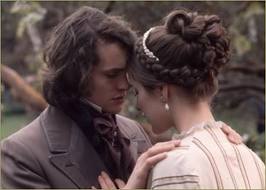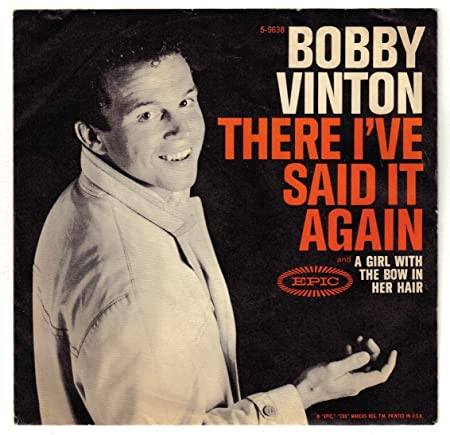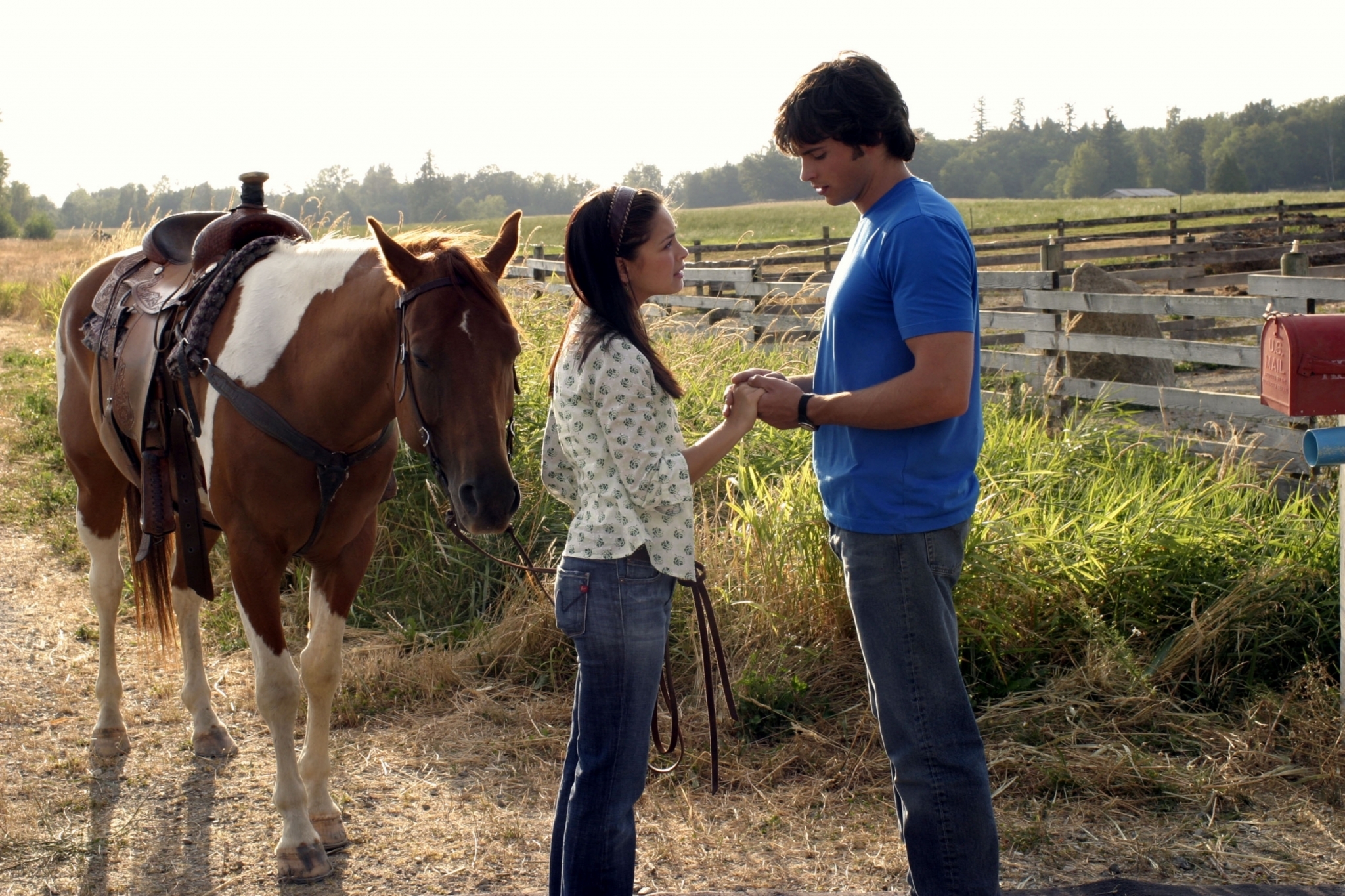|
home | what's new | other sites | contact | about |
||||||
|
Word Gems exploring self-realization, sacred personhood, and full humanity
Agnes and David
Editor's note: excerpts from chapter 62 of Charles Dickens' David Copperfield:
I sat beside her on the window-seat, and we talked of what I was doing, and when it would be done, and of the progress I had made since my last visit. Agnes was very cheerful; and laughingly predicted that I should soon become too famous to be talked to, on such subjects. 'So I make the most of the present time, you see,' said Agnes, 'and talk to you while I may.' As I looked at her beautiful face, observant of her work, she raised her mild clear eyes, and saw that I was looking at her. 'You are thoughtful today, Trotwood!' 'Agnes, shall I tell you what about? I came to tell you.' She put aside her work, as she was used to do when we were seriously discussing anything; and gave me her whole attention. 'My dear Agnes, do you doubt my being true to you?' 'No!' she answered, with a look of astonishment. 'Do you doubt my being what I always have been to you?' 'No!' she answered, as before. 'Do you remember that I tried to tell you, when I came home, what a debt of gratitude I owed you, dearest Agnes, and how fervently I felt towards you?' 'I remember it,' she said, gently, 'very well.' 'You have a secret,' said I. 'Let me share it, Agnes.' She cast down her eyes, and trembled. 'I could hardly fail to know, even if I had not heard -- but from other lips than yours, Agnes, which seems strange -- that there is someone upon whom you have bestowed the treasure of your love. Do not shut me out of what concerns your happiness so nearly! If you can trust me, as you say you can, and as I know you may, let me be your friend, your brother, in this matter, of all others!' With an appealing, almost a reproachful, glance, she rose from the window; and hurrying across the room as if without knowing where, put her hands before her face, and burst into such tears as smote me to the heart. And yet they awakened something in me, bringing promise to my heart. Without my knowing why, these tears allied themselves with the quietly sad smile which was so fixed in my remembrance, and shook me more with hope than fear or sorrow. 'Agnes! Sister! Dearest! What have I done?' 'Let me go away, Trotwood. I am not well. I am not myself. I will speak to you by and by -- another time. I will write to you. Don't speak to me now. Don't! don't!' I sought to recollect what she had said, when I had spoken to her on that former night, of her affection needing no return. It seemed a very world that I must search through in a moment. 'Agnes, I cannot bear to see you so, and think that I have been the cause. My dearest girl, dearer to me than anything in life, if you are unhappy, let me share your unhappiness. If you are in need of help or counsel, let me try to give it to you. If you have indeed a burden on your heart, let me try to lighten it. For whom do I live now, Agnes, if it is not for you!' 'Oh, spare me! I am not myself! Another time!' was all I could distinguish. Was it a selfish error that was leading me away? Or, having once a clue to hope, was there something opening to me that I had not dared to think of? 'I must say more. I cannot let you leave me so! For Heaven's sake, Agnes, let us not mistake each other after all these years, and all that has come and gone with them! 'I must speak plainly. If you have any lingering thought that I could envy the happiness you will confer; that I could not resign you to a dearer protector, of your own choosing; that I could not, from my removed place, be a contented witness of your joy; dismiss it, for I don't deserve it! I have not suffered quite in vain. You have not taught me quite in vain. There is no alloy of self in what I feel for you.' She was quiet now. In a little time, she turned her pale face towards me, and said in a low voice, broken here and there, but very clear: 'I owe it to your pure friendship for me, Trotwood -- which, indeed, I do not doubt -- to tell you, you are mistaken. I can do no more. If I have sometimes, in the course of years, wanted help and counsel, they have come to me. If I have sometimes been unhappy, the feeling has passed away. If I have ever had a burden on my heart, it has been lightened for me. If I have any secret, it is -- no new one; and is -- not what you suppose. I cannot reveal it, or divide it. It has long been mine, and must remain mine.' 'Agnes! Stay! A moment!' She was going away, but I detained her. I clasped my arm about her waist. 'In the course of years!' 'It is not a new one!' New thoughts and hopes were whirling through my mind, and all the colours of my life were changing. 'Dearest Agnes! Whom I so respect and honour -- whom I so devotedly love! When I came here today, I thought that nothing could have wrested this confession from me. I thought I could have kept it in my bosom all our lives, till we were old. But, Agnes, if I have indeed any new-born hope that I may ever call you something more than Sister, widely different from Sister!' Her tears fell fast; but they were not like those she had lately shed, and I saw my hope brighten in them. 'Agnes! Ever my guide, and best support! If you had been more mindful of yourself, and less of me, when we grew up here together, I think my heedless fancy never would have wandered from you. But you were so much better than I, so necessary to me in every boyish hope and disappointment, that to have you to confide in, and rely upon in everything, became a second nature, supplanting for the time the first and greater one of loving you as I do!' Still weeping, but not sadly -- joyfully! And clasped in my arms as she had never been, as I had thought she never was to be! 'When I loved Dora -- fondly, Agnes, as you know --' 'Yes!' she cried, earnestly. 'I am glad to know it!' 'When I loved her -- even then, my love would have been incomplete, without your sympathy. I had it, and it was perfected. And when I lost her, Agnes, what should I have been without you, still!' Closer in my arms, nearer to my heart, her trembling hand upon my shoulder, her sweet eyes shining through her tears, on mine! 'I went away, dear Agnes, loving you. I stayed away, loving you. I returned home, loving you!'
And now, I tried to tell her of the struggle I had had, and the conclusion I had come to. I tried to lay my mind before her, truly, and entirely. I tried to show her how I had hoped I had come into the better knowledge of myself and of her; how I had resigned myself to what that better knowledge brought; and how I had come there, even that day, in my fidelity to this. If she did so love me (I said) that she could take me for her husband, she could do so, on no deserving of mine, except upon the truth of my love for her, and the trouble in which it had ripened to be what it was; and hence it was that I revealed it. And, oh, Agnes, even out of thy true eyes, in that same time, the spirit of my child-wife looked upon me, saying it was well; and winning me, through thee, to tenderest recollections of the Blossom that had withered in its bloom! 'I am so blest, Trotwood -- my heart is so overcharged -- but there is one thing I must say.' 'Dearest, what?' She laid her gentle hands upon my shoulders, and looked calmly in my face. 'Do you know, yet, what it is?' 'I am afraid to speculate on what it is. Tell me, my dear.' 'I have loved you all my life!'
Kairissi. Dear God, Ellus, I must lend my voice to Agnes and also say, “my heart is so overcharged”! Elenchus. It’s pretty heavy stuff. K. As we’ve said many times, there’s a universal process in play with authentic romance. Truly, there seems to be “one love story.” E. I have to admit, you’re onto something with this “universal process.” I'd like more of your thoughts on this. K. (sighing) Dear, so many love stories have to do with lovers out-of-phase with each other, but then waking up to each other. E. The author has asked us to comment on some of the big names of romantic literature. And I’ll tell you this: even though Dickens is not usually associated with eros, he’s no “also ran” in this field. K. There’s one section in the dialogue between Agnes and David that’s so laden with deep feeling and profound meaning: I tried to show her how I had hoped I had come into the better knowledge of myself and of her; how I had resigned myself to what that better knowledge brought... And, oh, Agnes, even out of thy true eyes, in that same time, the spirit of my child-wife looked upon me, saying it was well; and winning me, through thee, to tenderest recollections of the Blossom that had withered in its bloom! E. You have the microphone, Dear, please elucidate us. K. Where to begin? But there’s a phrase which might serve as focal point of their love; indeed, of the entire novel – “the spirit of my child-wife.” E. This phrase could be misunderstood. K. All great literature might be misunderstood. The surface-meaning is rarely the author’s primary message. E. Let’s go through these last couple of sentences very carefully. K. Ok, first notice that David says “the spirit of my child-wife” shines from Agnes’s “true eyes.” I think this encapsulates their entire history since childhood. David is saying to Agnes, “You stand before me now as a young woman. You’re all grown up, no longer that little girl with whom I ran and played in the fields. As I look into your ‘true eyes,’ I see us as ten years-old again. And I suddenly realize nothing’s changed. But, when I say 'nothing’s changed,' I'm astounded to perceive that, in those old days, there was something about you, already in place, that a young boy could not understand.” E. And then he says she's revealed as his “child-wife”! K. Dickens wants us to know that Agnes had always been his wife! – but he couldn’t receive this knowledge at age ten. E. But she could. K. That’s why they call members of her species Love Personified. Dickens’ phrase, “the spirit of my child-wife,” dramatically embodies the entire out-of-phase anomaly of lovers. E. He says he sees it in her “true eyes.” K. A smile might lie but never the eyes. E. It's the proverbial window to the soul. And what are the “true eyes” of the “child-wife” communicating? K. Her eyes are saying, “Don’t you know who I am to you? - I'm the one who's meant to love you!” E. It's asking a lot of a ten year-old boy to solve this puzzle. His hyper-drive won’t even be retro-fitted until Tuesday. K. And that's a problem for ten year-old girls. Even at that age, in many ways, they’re already fairly sophisticated women with intuitive understanding of the ways of love. E. It's factory-installed for them. That’s not fair. How's he supposed to compete with that? K. Well, she was wise enough not to draw attention to the imbalance of armaments. She kept quiet, played along with the brother-sister routine for quite a few years. E. She had to wait – until he grew up... K. ... until he caught up with her. E. ... until he came to a “better knowledge." K. It was looking pretty grim for quite a while. She didn't see him for a long time. He was a smart boy, left the home village, went far away, made something of himself; but he also attracted women and slept with them. E. In his defense, he wasn't malicious toward Agnes. At age ten he hadn’t yet noticed destiny in her "true eyes," and so he did move on to others. For a long time he thought of his old neighborhood play-pal as just his “sister.” K. Not an annoying one, I'm sure. E. Of course, not. But please say more about those “true eyes.” K. (softly) They were “saying it was well.” E. She hadn’t condemned him for not noticing the message in her eyes. K. And this lack of condemnation would result in “winning” him -- "to tenderest recollections of the Blossom that had withered in its bloom!” E. Dickens really outdid himself here. The statement about “the Blossom” – notice the capitalization – that had withered in its bloom” is utterly poetic. Since you're my local representative of Love Personified, would you care to translate this for us, Dear? K. Their destined love is a like a flower. It would “Blossom,” in a potential sense, even when they were ten. Flowers have always been symbols of love, beauty, and grace, and “Blossom” is given to us in upper-case because their private love would be the greatest expression of love, beauty, and grace in their eternal lives. E. As a young Neanderthal, he wasn’t ready to understand this. But her “true eyes” of non-judgmental spirit would later win him over, allow him to come back, not just to her but to himself, that better self-knowledge. K. David's self-knowledge became a kind of time-machine – a “tenderest recollection,” a realization that long ago he had lost the only girl he could ever love – a love “that had withered in its bloom.” E. (silence) K. Is there a greater sense of horror than to finally perceive that one has lost, had failed to receive, the only person one might ever truly love? E. (sighing) E. We are tempted to ask, why did love “bloom” so early? Why did she experience herself as his “child-wife” so many years before he got his head on straight? Is Mother Nature so unwise in her timing? K. As we've drawn the distinction, this is not Mother Nature at work but, I think, Madam Destiny. And there is no “on-off” switch for the soul. If they are Twins, their hidden soul-pledges will always be in active mode, blasting out a radiance of who they are to each other. The problem lies not in activating but in detecting the transmission. Children are typically "offline" in this regard -- most adults, too -- and not every little girl at ten sees as clearly as did Agnes; but if and when it happens, even at age ten, it does so as authentically as it might for a woman of 23 or 45. E. I feel sorry for Agnes. She saw so much "before the time," so early on -- and what do you do then when your destined one is still half-baked and blind? K. In her case, she waited for him; it was the right decision, but a very painful one. E. It's what Jesus talked about - how "most people will not be able to accept this." K. Not every girl possesses an inner moral guidance, plus the enabling fortitude, to live alone while one’s true mate is off gallivanting in the world, oblivious to her identity. However, let us not elevate Agnes to highest sainthood. There is reason why she tried to leave the room more than once as David spoke. Dickens would have us know of an undercurrent of anger she harbored about their out-of-phase affair. Agnes bursts into heavy weeping, but not before stealing a "reproachful" glance at her secretly longed-for lover. E. How utterly terrible to wait for a stupid boy who cannot wake up! K. (sighing) E. Dear… what will you take from the story of Agnes and David? K. The flower of love might bloom at any age. There is a story, apparently true, of two eight year-old kids whose parents were missionaries in Africa. While living in the outback, the little boy proposed marriage to his sweeter counterpart, sealing the agreement with a borrowed vial of perfume from his mother. The little girl accepted. They agreed to wait for each other until a time of legal age, but, in a very real way, they'd entered that rarified atmosphere of “child-husband” and “child-wife.” They did indeed officially marry in late teens and, at last report, have a good marriage. E. Wow… at age eight I was nowhere near able to think about marrying a little girl. K. (softly) Tell me about it… E. Possibly, we could avoid that topic right now. K. mmm... E. As a final note, I'd like us to say a word more about Agnes's admission: "I have loved you all my life!" K. Love becomes a function of "detection." This means that, even if two are destined, nearly 100% of the time they'll be out-of-phase with each other -- because "synchronized dancing" is really hard to choreograph; it's virtually not possible to wake up at the same time. E. Sometime during the same century would be fine, though. K. There is that, but the soul has its own timetable and will not be rushed. But notice, too: Agnes did not say, "I finally fell in love with you." No, none of that Mother-Nature stuff. Instead, she wants David to know that her love is a bi-directional timeline arrow, pointing toward both poles of infinity. E. This is what we talked about -- love as timeless, pervasive reality. K. Because every true love-affair begins out-of-phase, eventually, every awakening Twin will make the same admission as did Agnes: "I have loved you all my life!"
Lana and Clark, to borrow Chloe’s phrase, “have more issues than Rolling Stone.” With them, there’s always a thorn popping up to annoy them. Even so, there’s something about this couple. They just seem so natural together, their energies meld so easily; and yet, at the surface of life, an affinity isn’t always readily apparent. It’s strange, really – this classic “boy and girl next-door” have loved each other, subliminally and overtly, since first grade. But this doesn’t mean they’ll get to be together in this life. As we’ve learned from the Troubadour Guides, “hindrance, obstacle, and impediment” will bedevil destined lovers in this world, keeping them in a state of perma-out-of-phase. Class is in session, but we’re not talking about Smallville High.
|
||||||
|
|








